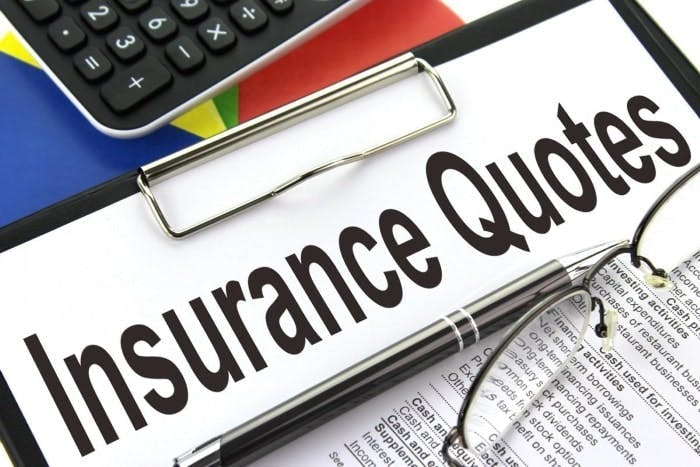
Buying car insurance can be a tricky and expensive ordeal. Insurance providers have to look at factors ranging from your experience on the road to your claims history in order to calculate your premiums.
What can really drive up the cost of your insurance, however, is if an insurer decides that you’re a high risk driver. If you’re unlucky enough to end up in this category, you could end up paying a fortune to insure your car.
So, how do you know if you’re a high risk driver, and what can you do to combat the issue? We’re going to walk you through exactly what it means to be classed as a high risk driver and explain how long this label can apply to you. We’ll also throw in a few tips to help you drive down the price of your premiums! Get the full lowdown below...
High risk car insurance
As you’re probably aware, buying car insurance can be a time-consuming process. We’re not just talking about the effort that you, as a customer, have to put into finding the right provider and comparing quotes.
Insurance providers also have to take into account a variety of factors when calculating car insurance premiums. It’s not as simple as giving every driver the same flat fee—given that some drivers are far more likely to end up involved in some kind of an accident on the road. From your age to your occupation to your type of car, insurers carefully consider everything on the table.
One of the biggest and most important questions they have, however, is: “How risky will this driver be to insure?” After all, if you end up in an accident and need to make a claim for damages to your vehicle, the insurer will be the one forking out for it. If this ends up being a recurring problem, then the insurer could end up paying out a series of huge claims—leaving them out of pocket.
If an insurer ultimately decides that you are a high risk driver, then they will charge you higher premiums in order to ensure that they can make up the cost if you end up making a claim. So, what exactly goes into calculating whether or not you’ll be lumped with high risk insurance? Let’s take a look below...
How do I know if I’m a high risk driver?

You have points on your licence
If you’ve been caught committing a driving offence, e.g., drink-driving, speeding or driving without proper insurance coverage, you will end up with penalty points on your driving licence. The number of points you receive will depend entirely on your offence. Unfortunately, if you’ve got any number of points on your licence, you will end up with some kind of increase in your premiums. After all, if you’re likely to ignore driving laws, you’re also just as likely to end up involved in some kind of an accident—marking you as a high risk driver.
Your insurer will ask you if you have any penalty points when you sign up to your policy. If you lie, and the insurer catches you out, they could end up denying a claim further down the line. This would leave you to foot the bill. It’s also likely that they’ll end up cancelling your car insurance. Honesty is the best policy when it comes to insurance!
Before you start swearing off driving and insurance altogether, you need to remember that points don’t stay on your licence forever. Depending on your offence, your points will disappear after 4 to 11 years. Once this time is up, you’ll have a clean licence and will no longer be in the high risk category.
You’ve been disqualified from driving
As you’d probably expect, you will definitely end up with eye-watering premiums if you’ve ever been disqualified from driving by the DVLA. It takes a lot to get disqualified from driving. You have to accrue 12 or more penalty points within a 3 year period, or be convicted of a serious driving offence. Or, if you’re a new driver, you’ve got to receive 6 or more penalty points within 2 years of passing your test.
In short, you don’t end up with a disqualification from driving for a simple slip-up. You get disqualified for breaking the law, usually more than once. This kind of pattern of behaviour will instantly place you in the high risk category. As a result, insurers will want to charge you hefty premiums in order to make up for any claims you’re likely to make.
You have a history of insurance claims
If you ever end up involved in an accident on the road, you have to get in touch with your insurer in order to make a claim. They will then cover the costs involved. (Depending on the amount you agreed on for your excess, you could also end up paying a big fraction of it yourself.) Now, some drivers may go their entire lives without having to make a claim. Others, however, end up with a lengthy claims history under their belt.
If you have had to make a claim more than once within the last few years, it’s an instant red flag to insurance providers. Their thought process is that, if you’ve needed to make multiple claims in the past, you’re likely to make one again in the near future. Even if the accidents weren’t your fault, insurers are still going to consider you a high risk to insure. The same applies if you’re currently in the middle of settling an insurance claim.
You have criminal convictions
Insurance providers don’t just look at your driving offences, they look at other criminal convictions as well. According to Compare the Market, criminal convictions will lead to higher premiums because “statistics show that drivers who have a criminal conviction are more likely to be involved in an accident and make a claim”. Bear in mind, however, that criminal convictions eventually become “spent” after a certain amount of time—so, you do have the chance to move out of that high risk bracket. Unless, of course, you had a sentence of four years or more. In which case, your conviction will remain unspent and leave you stuck with high risk insurance.
As with penalty points, you should never think about not telling your insurer about your conviction(s). If they were to find out, they could refuse any claims you make and invalidate your insurance policy.
You’re a young driver
If you’re 17 to 25 years old, you’re officially a young driver. Unfortunately, youth is not on your side when it comes to car insurance. Young drivers are looking at hefty premiums that average at around £1,474 according to MoneySuperMarket (accurate as of March 2020). This is because drivers in this particular age group tend to be at a higher risk of being involved in an accident on the road and needing to make a claim. You can get a more in-depth look at why this is the case in our guide to why young drivers pay higher insurance premiums. That’s not to say that you’re completely doomed here. There are plenty of steps you can take to reduce your premiums, rather than simply waiting to hit 26! (Head on down to ways you can lower your premiums for more information.)
You’re a new driver
It’s not just young drivers who can be lumped with high insurance premiums. If you’re over 25, but have only just passed your test within the last two years, you might still end up in the high risk category. Though your age group might have lower average premiums, your inexperience, which instantly raises alarms to insurers, could push your premiums up.
Even if you consider yourself to be a top notch driver, the fact remains that you’re still new to driving on the road unsupervised. New drivers are likely to be involved in an accident—whether it’s due to panicking or letting things slide without the supervision of their driving instructor. Of course, if you keep reading, you’ll find out a few ways in which you can lessen the sting just a tad.
What else can increase my premiums?

Unfortunately, the above is just the tip of the iceberg. Insurance providers sort through a heap of information for each prospective customer. Even if you happen to be an experienced driver with no prior offences, convictions or claims, you could still end up stuck with high premiums depending on your:
- Car. If you’ve bought a high-end car, it will be expensive to replace its parts in the event of an accident—meaning, the insurer will have to pay out more. It’s the same in the event of a theft. Even if you bought a cheap car, if you’ve made modifications, it will likely increase your premiums.
- Occupation. If you’re on the road a lot with your job, and you carry important equipment with you, you’re going to end up forking out for higher premiums. If, on the other hand, you’ve got an incredibly short commute to work, your premiums might be much cheaper.
- Location. If you live in a busy city with lots of traffic, you’re more likely to be involved in an accident due to the high volume of road users—leading to insurers charging you more. Similarly, you can expect high premiums if you live in an area that is plagued with car thefts.
It’s as we’ve said, insurers take a lot of factors into account when calculating your premiums. There’s no such thing as one size fits all when it comes to car insurance!
So am I stuck with high risk car insurance forever?
Not necessarily! Many of the factors that we’ve discussed in the sections above are time sensitive. If you have penalty points or a criminal conviction, for example, they will end up spent after a certain amount of time. (Obviously, this will vary depending on your particular circumstances.) Similarly, new drivers will eventually shed their ‘new’ status once they’ve had over two years of experience on the roads.
It’s important to bear in mind as well that premiums can fluctuate over the years. If you prove to your insurer that you’re a safe driver, that is, you don’t commit any driving offences or make a claim, they’ll offer you cheaper premiums when it comes time to renew your policy. The opposite, of course, can occur if you end up with penalty points or in an accident. Not willing to wait for your premiums to decrease? We thought so! That’s why you’ll want to move onto the next section for some top insurance advice!
What can I do to lower my insurance premiums?
Whether you’re a high risk driver, or simply someone delving into the realm of car insurance for the first time, PassMeFast is here to help! We’ve got a range of top resources to hand to help you reduce those premiums and get the best possible insurance policy. So, here’s what you’ve got to do…
- Opt for a black box (telematics) insurance policy. If you’re a safe driver, you can get rewarded for your top driving. Simply let your insurer install a black box that will monitor your driving. If you show your insurer that you know how to follow the rules of the road, then you’ll get lower premiums!
- Follow our top 10 tips to save money on your car insurance. From tweaking your job title, to upping your security to paying a higher excess, there’s an assortment of ways in which you can enjoy lower premiums.
- Think about buying a cheaper car. The type of car you own can increase your premiums by hundreds of pounds if you’re not careful. If you’re not picky with cars, why not think about buying one that will guarantee lower premiums?
Subscribe for driving advice, offers & more
We'd love to let you know about our courses, news and offers via email. You may unsubscribe at any time.
Star Genie Limited trading as PassMeFast. Company number 10093359
Copyright © 2024 owned by Star Genie Limited
PassMeFast, Blue Tower, MediaCityUK, Salford, M50 2ST
